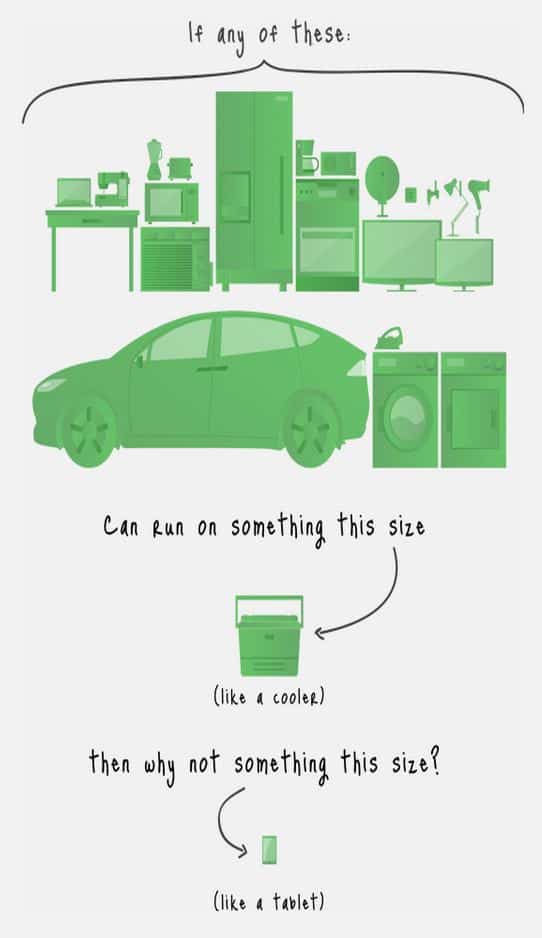 With the catchy phrases “think shrink”, “smaller is bigger” and “min it to win it”, the Little Box Challenge, sponsored by Google and IEEE will pay a one million dollars to the company or entity that builds and designs a kW-scale inverter with the highest density of at least 50 watts per cubic inch.
With the catchy phrases “think shrink”, “smaller is bigger” and “min it to win it”, the Little Box Challenge, sponsored by Google and IEEE will pay a one million dollars to the company or entity that builds and designs a kW-scale inverter with the highest density of at least 50 watts per cubic inch.
Inverters are the boxes that convert direct current from sources such as solar panels or batteries and turns it into alternating current for use in homes, businesses or cars.
The inverter does not produce any power, the power is provided by the Direct Current source. A power inverter can be entirely electronic or may be a combination of mechanical effects (such as a rotary apparatus) and electronic circuitry.
Most inverters currently available are too big about the size of picnic cooler. If the inverters are smaller, there could be more solar powered homes, electric grids, remote areas and even more cars.
If inverters can be shrunk by 10x and smaller than everyone else, then the entrant will be the winner. Teams must register by September 30, 2014. Research at Google is also making a limited number of awards of available to academics in concert with the prize.
September 2014
- Applicants contemplating competing in the prize must register their team by the registration deadline: September 30, 2014.
- Eligible academics interested in pursuing grant funding must apply by the grant application deadline: September 30, 2014 by visiting the University Relations site.
July 2015
- Registered teams must submit a technical approach and testing application by July 22, 2015.
October 2015
- Up to 18 finalists will be notified of their selection for final testing at the testing facility. They are required to bring their inverters in person to a testing facility in United States by October 21, 2015.